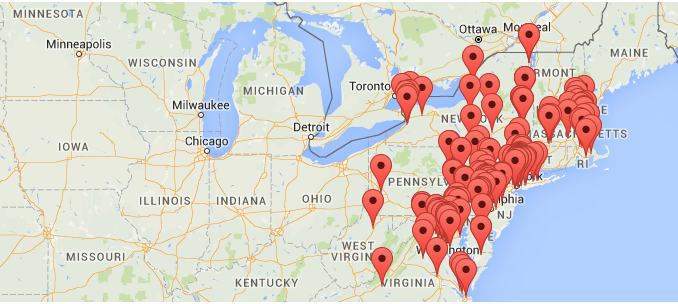What The Big Verizon Worker Strike Means For Consumers Image courtesy of Eric Hauser
Tens of thousands of Verizon employees walked off the job this morning, when months of inconclusive contract negotiations between the company and the union representing those workers finally stalled out completely.
The relationship between Verizon and the union has been publicly testy for some years now. The previous contract expired in August, 2015, but negotiations had both started before and continued since that point. The union, however, has several times in the past two years called out Verizon for failing to maintain legacy services, failing to roll out new services, failing to meet obligations to finish FiOS, and failing to serve low-income areas.
Verizon, alternately, has slammed the union’s statements and tactics. For example, when the city of New York audited Verizon’s FiOS rollout last year, the company said “it’s well known the union has ties to the city administration,” and called the detailed report a “union [negotiating] tactic.”
The war of words over the strike is, of course, pretty ugly, with each side accusing the other of bad faith and shady behavior. You can read both Verizon’s statement and the union’s statement, if you enjoy that sort of thing, but for those who want to know more about what’s happening and less about who blames whom for it, read on.
Who’s fighting?
The stand-off is between Verizon and the Communications Workers of America. The CWA represents about 700,000 telecom line workers nationwide, and that includes 39,000 Verizon employees (out of the company’s 177,000) in the northeast and mid-Atlantic. Many of those employees are also represented by the International Brotherhood of Electrical Workers (IBEW), which is also participating in the action.
The segment of employees that are on strike are primarily technicians, who actually install, repair, and maintain landline networks and equipment.
What services are involved?
The strike affects Verizon’s wire-line businesses. That includes FiOS (around 7 million total households, give or take) and all of the copper-wire landline service (both voice and DSL) in the region.
What customers are likely to be affected?
Primarily, this will affect customers along the East Coast — more or less the Boston-Washington corridor, plus a bit — who subscribe to Verizon landline services.
The union’s own protest site has a handy map of planned events that correlates pretty well to the cities where workers are striking: 
Verizon says it has trained other members of its work force to respond to the kind of calls the striking workers would usually handle, so that customers should see no interruption in service, but the union counters that 10,000 recently-trained replacements can’t handle the volume or type of requests that 39,000 long-time workers usually do.
Who is not really going to be affected?
Verizon subscribers outside of the northeast and mid-Atlantic are not likely to be affected by the strike. Likewise, the ~115 million consumers who buy Verizon Wireless mobile services should not be affected.
(That said, according to the union’s Twitter feed, there are also walkouts at at least one Verizon Wireless location, in Brooklyn, so that may be something to keep an eye on.)
Also, if your service is operating properly and no squirrels chew wires, no cars hit poles, no branches fall down, nothing needs installing, you’re not moving, your box doesn’t crash, your lines stay buried, etc., you personally probably won’t notice that there are fewer people answering phones and fixing problems than usual.
How long is this likely to last?
Who knows? ¯\_(ツ)_/¯
It’s a contract dispute, so the strike will continue until the union and the company reach negotiated terms both parties can agree with. That might be a day or two, a week or two, or a month or two. The last time negotiations failed, in 2011, a similar strike lasted about two weeks.
However, since 2011 Verizon has continued to cut their wire-line workforce and has seen a distinct reduction in subscribers and revenues on wired services, so it is entirely possible they are less motivated than before to resolve the work stoppage quickly.
Want more consumer news? Visit our parent organization, Consumer Reports, for the latest on scams, recalls, and other consumer issues.

